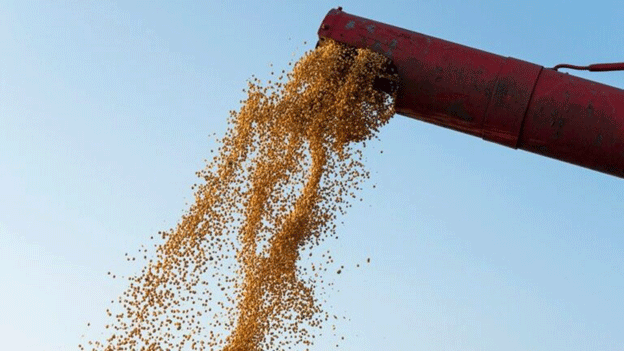Krasnodar Region Doubles Barley Exports in 2024: A New Agricultural Milestone
Since the beginning of 2024, Krasnodar Region has exported 192.8 thousand tons of barley, a 2.1-fold increase over the same period in 2023, as reported by RBC Krasnodar and the regional Ministry of Agriculture. This significant rise in barley exports underscores the region’s expanding role in the global agricultural market.
Export Growth: A Detailed Analysis
The substantial increase in barley exports from Krasnodar is accompanied by a notable rise in export revenue. The total value of barley exported in 2024 has reached $36.8 million, compared to $16.1 million in the previous year. This 2.2-fold increase in revenue indicates a strong global demand and competitive pricing for Krasnodar’s barley.
Market Distribution and Key Destinations
Krasnodar’s barley exports are primarily directed towards the Middle East and Transcaucasia, which together account for 84.2% of the total export volume. North Africa receives 13.4% of the barley exports, while Asia accounts for 2.4%. Notably, Russia has significantly increased its barley exports to Saudi Arabia, the UAE, Tunisia, China, and Algeria, with growth rates ranging from 5 to 8 times the previous year’s volumes, according to the Russian Grain Exporters Union.
Russia’s Position in the Global Barley Market
The exponential growth in barley exports from Krasnodar contributes to Russia’s broader agricultural ambitions. Oksana Lut, Russia’s Minister of Agriculture, projected at the All-Russian Field Day in Mineralnye Vody that Russia is on track to become the world’s leading barley exporter by the end of the current agricultural season. This prediction aligns with regional statistics, which show that as of July 4, 2024, winter barley constitutes 6.5% of the total grain export volume and 5.8% of the export value from Kuban.
Strategic Implications for Stakeholders
For farmers, agronomists, and agricultural engineers, Krasnodar’s success story offers several strategic insights. The doubling of barley exports within a year illustrates the importance of enhancing crop yield and quality, optimizing logistics, and identifying lucrative export markets. Furthermore, this trend highlights the potential benefits of investing in infrastructure and technology to support large-scale agricultural exports.
Farm owners and scientists working in agriculture can draw lessons on the significance of market diversification and the need to adapt to global demand patterns. The successful penetration of Middle Eastern and North African markets underscores the potential for expanding export portfolios and achieving higher profitability through strategic market targeting.
Krasnodar Region’s doubling of barley exports in 2024 marks a significant achievement in Russian agriculture, reflecting both regional prowess and national ambition. As Russia edges closer to becoming the world’s top barley exporter, stakeholders across the agricultural sector must capitalize on this momentum to sustain growth and maintain competitive advantage in the global market.
Error





